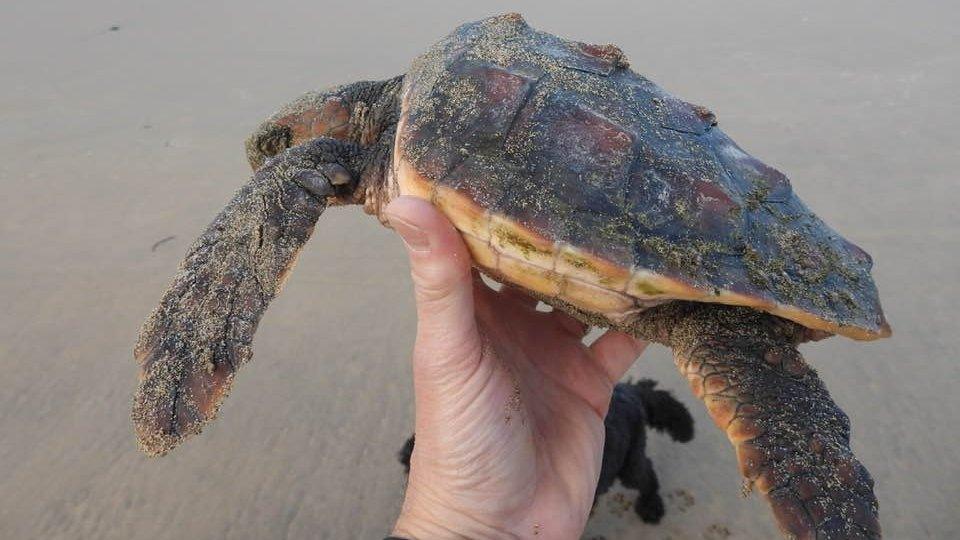Stranded loggerhead turtle rescued from Cumbrian beach
- Published
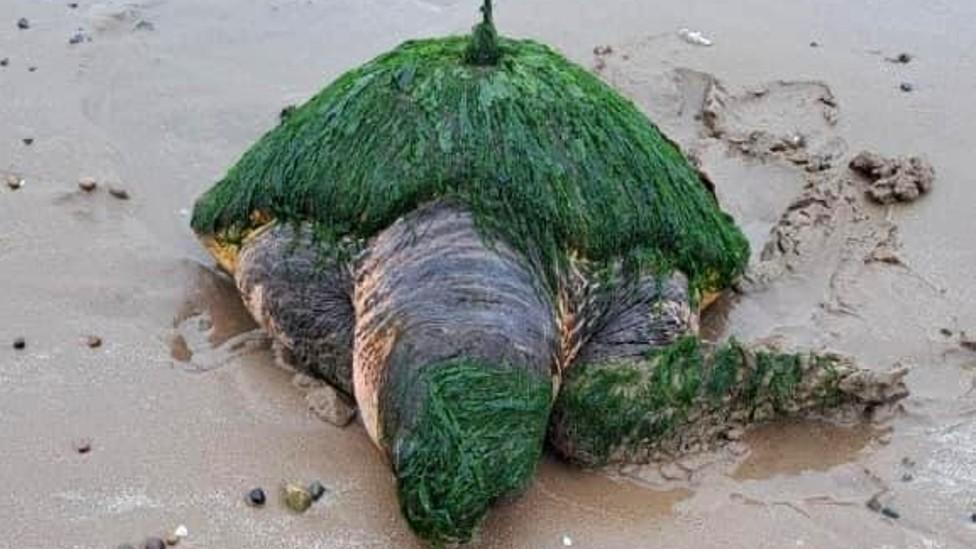
The Marine Conservation Society said the turtle was "very lucky to have been rescued"
A loggerhead turtle weighing about 50kg (eight stone) has been rescued after being washed up on a beach.
The sea creature, which had previously been fitted with a satellite tag, was found covered in algae on Walney Island, Cumbria, earlier in the week.
The Marine Conservation Society (MCS) said the algae suggested the turtle had become comatose due to the cold water.
The reptile is being cared for at Sea Life Blackpool before being released into its native waters.
Hailing from warmer waters, loggerhead turtles can be taken off course by storms when following warm Atlantic currents.
Loggerhead turtles are the most northerly nesting of all sea turtles, the MCS said.
"This turtle was very lucky to have been rescued. Not all turtles that strand on our shores this time of year survive," Peter Richardson, head of recovery at the MCS, explained.
"If they become ill, injured or weak, they will get swept up into the north Atlantic drift current which takes them into our cold waters," he said.
"As soon as they get into waters cooler than about 15C (59F), they stop feeding.
"Below 9C (48F), they shut down and become comatose. Once they are in that condition they are at the mercy of the currents," Mr Richardson added.
He said because the turtle was "covered in algae suggests that it's been fairly inactive for some time".
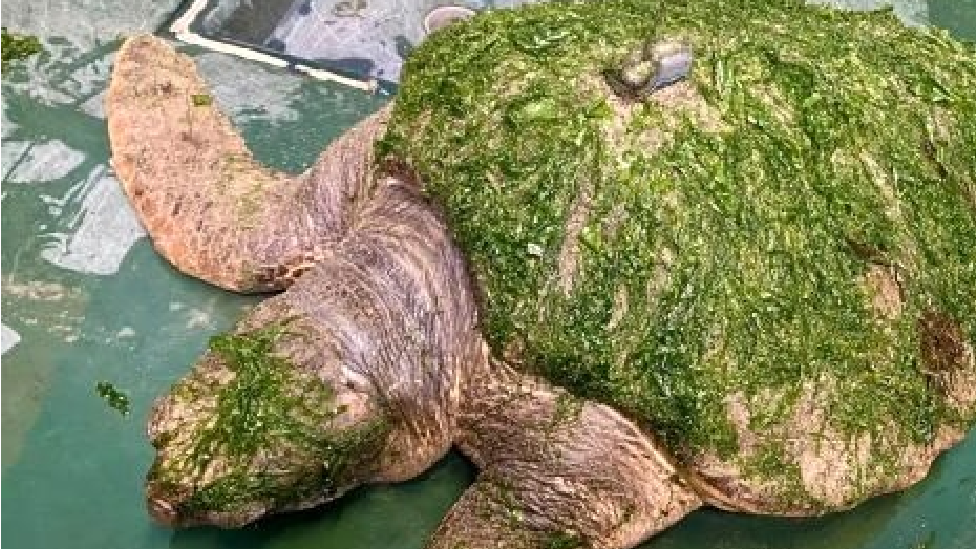
Mr Richardson said the turtle had "likely been washed up in France, fitted with a tag, put out in the cold Atlantic"
Mr Richardson said the reptile had been fitted with a satellite tag by an aquarium in France.
"The aquarium there have been doing experimental work to find out if loggerhead turtles washed up on their shores can survive release into cooler Atlantic water," he explained.
"This is something we would never do in the UK... we would never recommend releasing them back into chillier seas.
"As far as we are concerned, they are much better being released into warmer waters," he explained.
Mr Richardson said the turtle had "likely been washed up in France, fitted with a tag, put out in the cold Atlantic and low and behold, ended up on our shores".
"With a bit of expert care and very gentle reviving, then there is a good chance this turtle can make it," he added.

Follow BBC Cumbria on Facebook, external, X (formerly Twitter), , externaland Instagram, external. Send your story ideas to northeastandcumbria@bbc.co.uk, external.
- Published6 October 2023
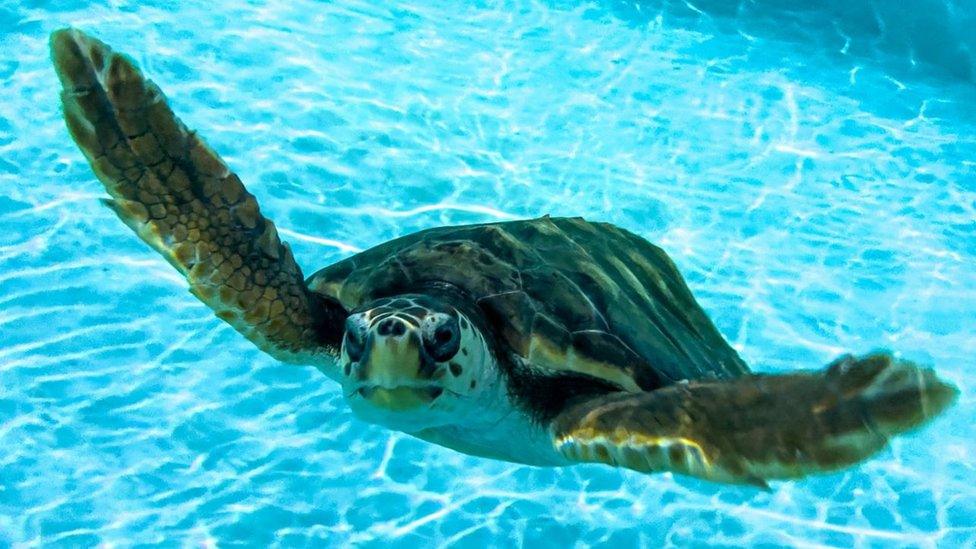
- Published9 March 2023
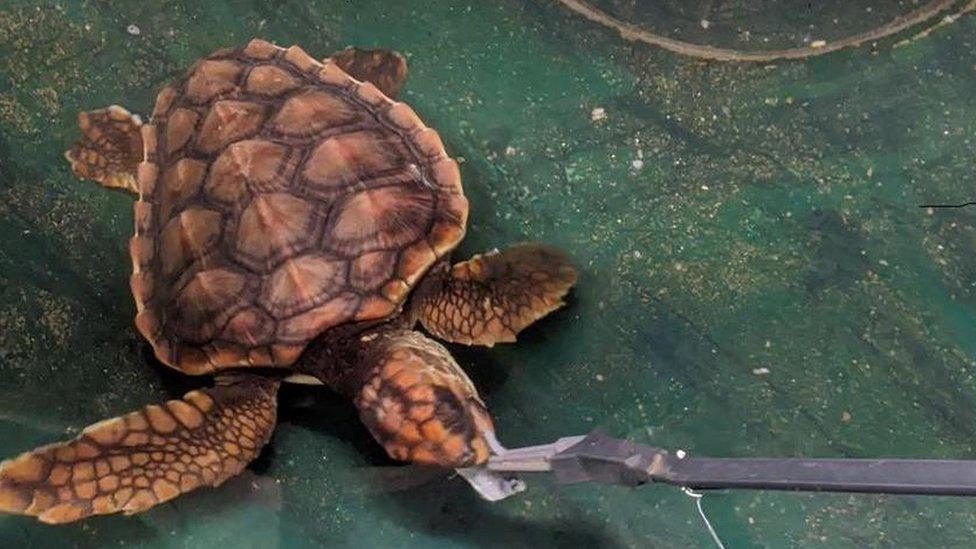
- Published13 January 2023
